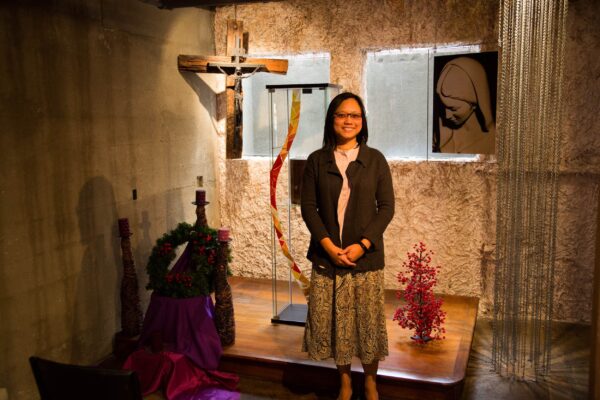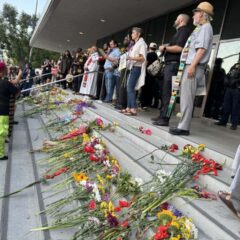When Sister Jeanette Kong was growing up in Singapore, she felt herself to be a “jaded and disillusioned young person.” She had been raised in a Catholic family environment with a Catholic school upbringing, yet it was only through the accompaniment she felt with the Verbum Dei Missionaries and fellow peers they brought together that she began to experience her first “encounter with a personal God.” It was a foundational experience that later shaped her discernment of a religious vocation.
Sister Jeanette is exemplary of many younger sisters today. Often, like-minded Catholic peers and mentors guide and accompany young women as they deepen their commitment to the faith of their upbringing and discern a vocation of religious life. She was one of more than two dozen sisters I spoke with for exploratory research on religious vocations in Southern California. Although new vocations in religious life are in rapid decline–as of 2010, only 9 percent of 47,170 Catholic sisters in the United States were younger than age 60–women are still drawn to religious life. Compared to earlier generations, when discerning religious life was highly esteemed and promoted within Catholic culture, religious life today is a radical path that is countercultural to normative expectations for a contemporary woman.
Sister Jeanette Kong on her spiritual journey as a Verbum Dei Missionary:
One of the key findings from interviewing a number of younger sisters was that in order to cultivate the depth of spirituality required for such a unique path, women need to embed themselves within a broad network of relationships and ties associated with the Catholic faith. While spirituality has typically been seen as an individual journey, people come to understand their spiritual and religious selves through their relationships and friendships with others.
This is a radical re-orientation of the self to God and the world, cultivated through a strong prayer life.
Their decisions are intensely fostered in the company of others, particularly with peers through high school, college and church life. Group activities, such as retreats and prayer groups, are an important part of the self-transformation process and they help individuals understand their own spiritual journeys. This intimate web of community ties and friendships plays a powerful role in instigating the “conversion experience” many sisters describe having before entering religious life.
Today, like the mentors of her youth, Sister Jeanette seeks to foster a spirit of accompaniment among college-age students through her campus ministry work at UCLA. The intent of these ministries is not necessarily designed to attract vocations, but it is part of their mission to support people’s spiritual development. Such ministries offer participants not only a space for individual introspection through prayer, scripture reading and even silent meditation, but also the social, interactive and communal dimensions necessary for this process of religious introspection.
Although many young sisters are raised as practicing Catholics, it is in the presence of mentors like Sister Jeanette and their fellow peers that a young person’s “conversion story” may begin.
Nalika Gajaweera was a senior research analyst with the USC Center for Religion and Civic Culture through 2023.





